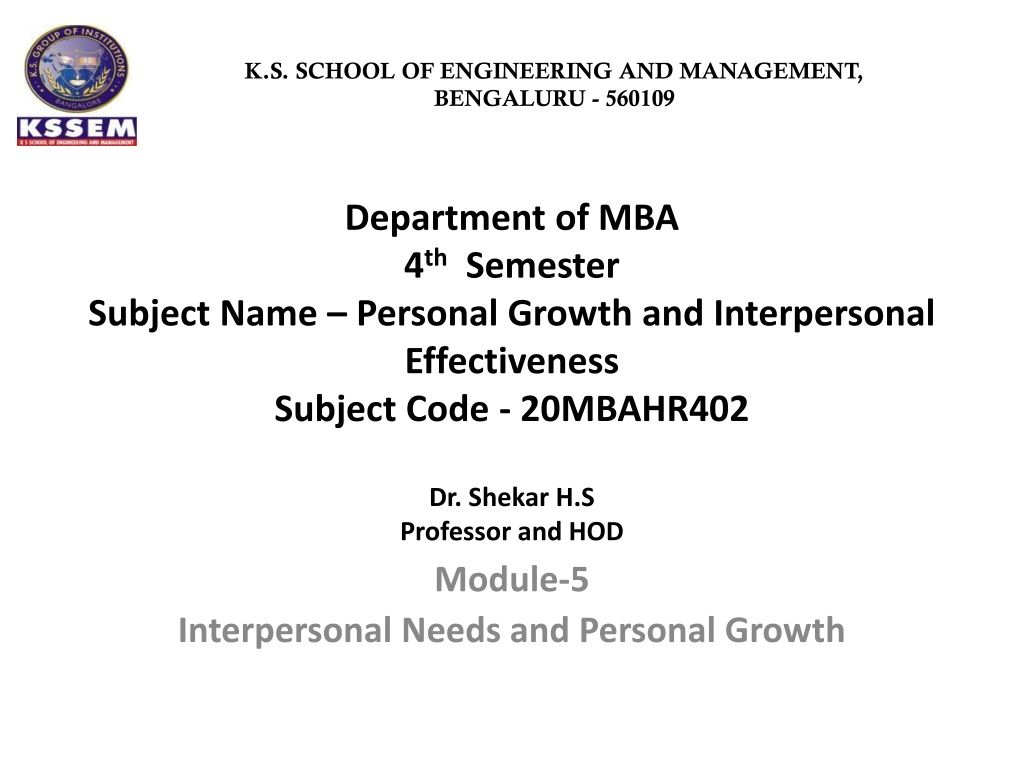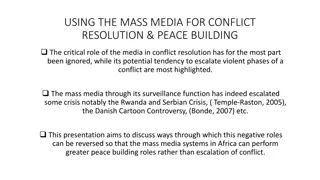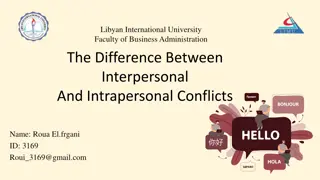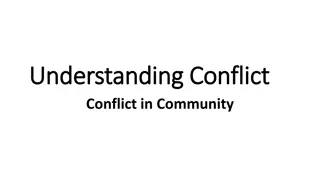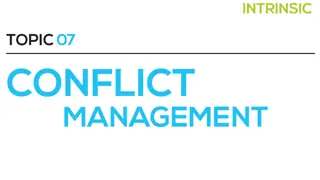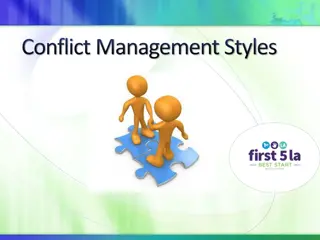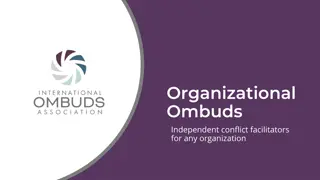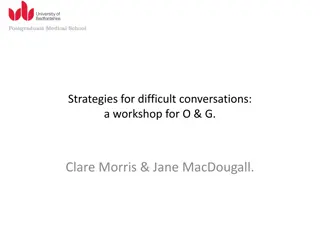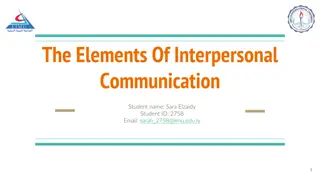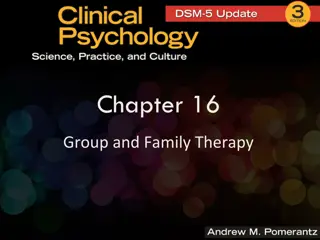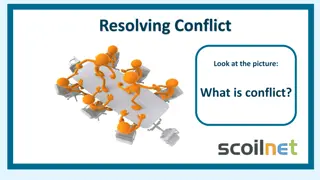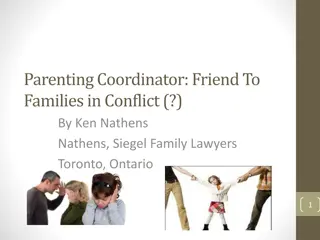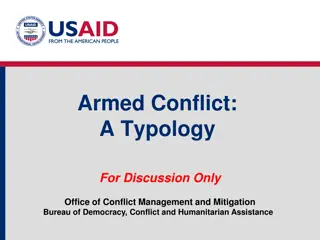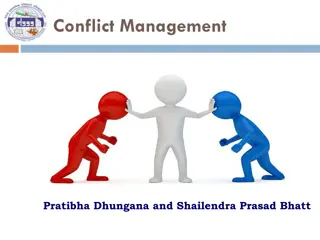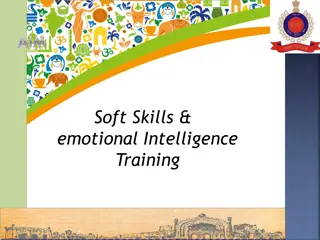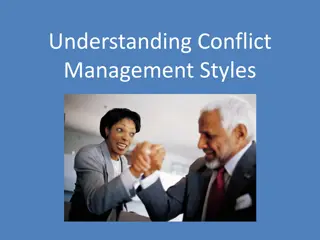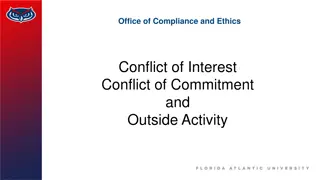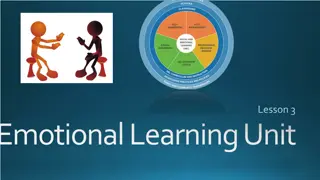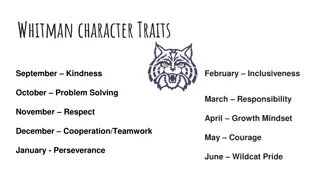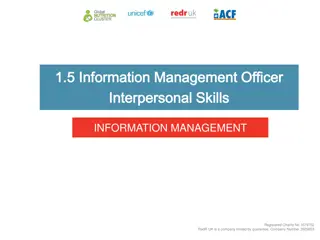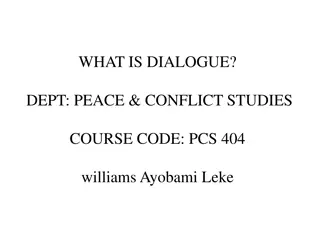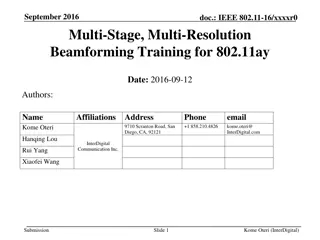Understanding Interpersonal Needs and Conflict Resolution in Personal Growth
Explore the importance of interpersonal needs such as inclusion, control, and affection in personal growth along with conflict resolution strategies like problem-solving, emotional intelligence, and communication skills. Discover insights on FIRO-B theory and practical skills for managing conflicts effectively.
Download Presentation

Please find below an Image/Link to download the presentation.
The content on the website is provided AS IS for your information and personal use only. It may not be sold, licensed, or shared on other websites without obtaining consent from the author. Download presentation by click this link. If you encounter any issues during the download, it is possible that the publisher has removed the file from their server.
E N D
Presentation Transcript
K.S. SCHOOL OF ENGINEERING AND MANAGEMENT, BENGALURU - 560109 Department of MBA 4thSemester Subject Name Personal Growth and Interpersonal Effectiveness Subject Code - 20MBAHR402 Dr. Shekar H.S Professor and HOD Module-5 Interpersonal Needs and Personal Growth
INTERPERSONAL RELATIONSHIPS AN OVERVIEW William Schultz has identified three such of interpersonal relations needs. Inclusion - Inclusion is the need to establish identity with others. 1. Control - Control is the need to exercise leadership and prove one's abilities. 2. Affection - Affection is the need to develop relationships with people. 3.
FIRO B Fundamental Interpersonal Relations Orientation (FIRO) is a theory of interpersonal relations, introduced by William Schultz in 1958. The Theory is based on the belief that when people get together in a group, there are three main interpersonal needs they are looking to obtain - affection/openness, control and inclusion. Schultz developed a measuring instrument that contains six scales of nine-item questions that he called FIRO-B. This technique was created to measure or control how group members feel when it comes affection/openness or to be able to get feedback from people in a group. These categories measure how much interaction a person wants in the areas of socializing, leadership and responsibilities, and more intimate personal relations. to inclusion, control, and
Video Link Personal Development | Powerful Jim Rohn Motivational Compilation https://www.youtube.com/watch?v=mmU56vZs 72A
Students are advised to read the articles with the link provided Title : " Personality mapping: tool to understand interpersonal need and enhance performance " https://www.researchgate.net/publication/3188 27059_Title_Personality_mappingtool_to_under stand_interpersonal_need_and_enhance_perfor mance
Conflict Resolution / Management Skills Problem solving skills 1. Interpersonal skills 2. Skills of Emotional Intelligence 3. Skills of stress management 4. Listening skills 5. Communication skills 6. Negotiation skills 7.
The four step commitment honoring process is as follows Deliberately choosing your commitments Making a strong, inspired decision Understanding the downside Raising the probability of following through all the way to success
